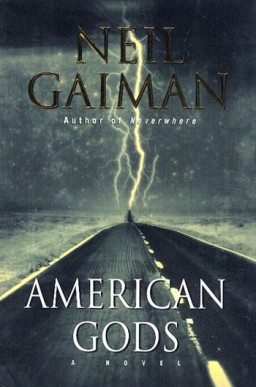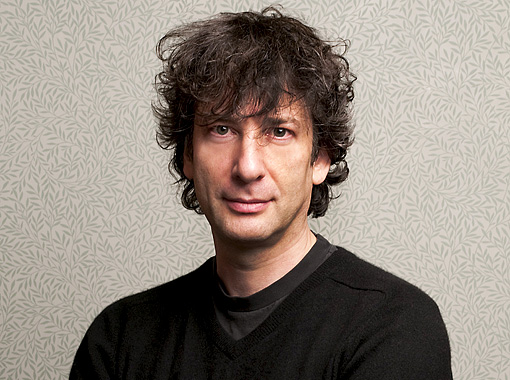An innovative novel that has mystery in it. An oddball nicknamed Shadow is released from prison and bumps into a strange man who offers him a job as a gofer; with no other prospects Shadow agrees, and slowly finds the man even odder than he first thought.

The genre is mixed, combing fantasy, krimi, satire, mystery, and horror, to paraphrase one of the many laudatory reviews. Others describe it as masterpiece of innovative fiction. Ho hum. It seems to have been written for jaded reviewers and awards panel members, not for readers in search of diversion, enlightenment, engagement, and pleasure. It is indeed very well written and the author is a story teller at heart. that much is clear.
To this reader it suffers from the complaint of much self-consciously modern, genre-bending literature in that it tries too hard to be different. We have multiple perspectives, most of which are unreliable, combined with non sequitur narrative lines that fizzle out, intercut with stories from times past with no discernible connection to the foreground story of Shadow.
Spoiler alert. The thesis is that the gods are among us, and that is cleverly done. There is rough division between the old gods and the new gods. The old ones are two kinds: native, e.g., Indian, and immigrant. The waves of immigrants to North America in the 18th, 19th, and 20th Centuries brought their gods with them in their minds and hearts – which vivify the gods. But life and times changed for the Indians and for immigrants and the Old Gods have worn down, no longer worshipped, no longer the object of sacrifice, no longer venerated, or embodied in effigies as tokens, no longer…. Without worship and offerings, the powers of the Old Gods diminish. Now these gods are reduced to driving taxi cabs (for generations) in one case), repairing refrigerators, living in self-imposed exile isolated in the north woods for near eternity. Yet most of them still hold on and out. Though some want to make the best of their reduced circumstances and have no wish to reclaim their former powers, others cannot endure a forever of cab driving or repairing refrigerators and propose a war with the new gods. Clever that.
Rising are the new gods, and this is the satire. They are media, represented by the Barbie Doll who reads the weather on every local television channel in the world. This one struck a chord of recognition in me. Another new god to be placated is television and the scenes involving ‘I Love Lucy’ gave me a cackle. If only!
The New Gods are moving decisively to eradicate the Old Gods, who have squabbled among themselves for centuries, and now find it hard to put aside these old enmities to pull together in defence. Shadow is drawn into this no (hu)man’s land between these two forces, and his gradual realisation of it, reaction to it, and acceptance of it, are very well handled. All in all, this clash of the gods makes as much sense as reality does, and this is before Trump Donald became president.
The end of the final negotiations between the old gods and the upstart new gods occur in a place I know well: the geographic centre of the continental forty-eight states. And where is that class?
Lebanon, Kansas.
It is very well described in these pages on a wintery night, long after the tourist season has finished, in a dilapidated motel nearby with swirling wind coming off the Great Plans carrying the scent of petrichor combined with the portent of much worse to come. It is brooding, and though vast, somehow confined. The author really makes it seem more like a gothic haunted house rather than the wide open and flat space of northern Kansas.
Reader, ‘petrichor?’ Look it up (in a big dictionary).
I know Lebanon KS from several visits and because it loomed large in my adolescent cosmology because it is only a few miles dues south of Hastings near the Platte.
The Old Gods are Norse, and mythological like an embodiment of Easter (but not Santa Claus).
The mix is too rich. Many story lines are started and few are finished. I grew weary of thumbing pages on the Kindle when the digressions set it. No doubt my loss but I like following a path, not stumbling through the underbrush in a zig-zags. This sort of reading reminds of defences against U-Boats, treating the reader as an adversary to be fooled, tricked, and deluded: Modernism is thy name.
In my reading, albeit incomplete and superficial, there is no divinity from the great religions, like Jesus, Allah, Buddha, or such. And no reference to Shinto.
There are however long sections on coin tricks, which Shadow learnt in prison to pass the time. Perhaps the emphasis on this skill is explained somewhere later but my Kindle flipping speed passed it by.
 Neil Gaiman
Neil Gaiman
Talking to a friend a few weeks ago, he said he had read and liked it. It seemed an odd choice for him and later when thinking about starting another book, I turned on the Kindle and decided to try it as a change of pace. Not to my taste.
Skip to content
